+1 (800) 753-3570
+1 (800) 753-3570

Grants are a fantastic way to help fund a classroom set of graphing calculators, or scientific calculators. If this is your first time looking for funding, you’ve come to the right starting point.
Finding funding for your educational needs can be daunting. If you’re not looking for a large sum of money, or are just interested in funding your own classroom, check out our Fundraising for Calculators with Underwood Distributing Co. blog post.
For those looking for a larger sum, we’ve split the grant writing process into three parts. We’ll go over what to do before writing, and what questions you should answer in each section of your proposal, along with general tips on how to best prepare your project.
The types of grants available to math teachers (like yourself) are usually one of the following three: state grants, federal grants, and private grants. Each grant type will have different levels of competition associated with it. You can anticipate the size of your competition based on the breadth of eligibility criteria and/or the amount of funding offered. The broader the criteria and the larger the funds, the greater the competition you face. Selecting the appropriate type of grant will come down to your funding needs. A teacher looking for hundreds of elementary/basic calculators might be chasing after the same amount of funding as a teacher looking for a single class set of graphing calculators.
State grants are funded by smaller budgets and consequently, result in smaller grant awards. These grants are straightforward, structured, and follow a streamlined & simple formula. These grants can be useful for people looking to fund their freshmen algebra class or their school’s math department.
Federal grants offer larger funding opportunities but are more comprehensive and difficult to write. The funding behind these grants is usually targeted at large schools or districts and can sometimes provide funding for several years. If calculators were to be purchased with a federal grant, the calculators must be used in a way to satisfy a specific community need.
Outside of government funding, private companies, or foundations, may have funds they aim to invest in the educational sector. These grants have goals to accomplish that are easily definable, simple, and have some sort of timetable attached to them.
Finding available grants, no matter the size, can feel intimidating. There are various websites and resources available to help you locate open grants that can be used for calculators. As you search for a grant that can be used for calculators, make sure to keep an open mind. Some grants are very specific to the type of projects they are looking to fund. If you encounter specific criteria the funder would like to see in the implementation of your proposal, take the idea into account and see if you can find a way to incorporate it into your own. Reworking your initial proposal as you search may broaden your opportunities for finding grants that match your needs!
GetEdFunding.com is a database that compiles a plethora of open grants. A teacher-favorite feature of the site is custom search. To get started, register on the site; registration is free. Select your personal preferences for the types of emails you would like to receive, along with the grade levels and focus areas that you are interested in exploring funding opportunities for.
Under the “register” and “log in” tabs, you’ll find the “custom search” option. Here, you’ll be able to explore various grants based on institution eligibility, grade level, focus, content area, theme/skills, and/or state. As a math teacher looking for calculator grants, you may want to select the “Mathematics” content area and “Problem Solving” skills in your search. Clicking on the title of a grant found based on your search criteria will lead you to a page that provides details about the grant such as the deadline, contact information, a description, and the original site it was posted on.
We recommend visiting GetEdFunding’s website for up-to-date and current information. GetEdFunding.com may have additional policies or conditions for their programs that may have been omitted or explained imperfectly in this post.
At Grants.gov, you’ll find resources on what grants are, how to apply for grants, and more at their Grants Learning Center. Here, you’ll also find a large searchable database full of all federal grants. This government site does not hold only educational grants, so make use of the filters on the left-hand side of the screen. Grants on this site can be forecasted (upcoming), posted (currently available), closed, or archived.
This database is massive, so make sure to be incredibly specific about what you’re looking to fund with your grant. Make sure to look only for posted or forecasted grants. As a math teacher, you should select the “Education” category for your search. You can add keywords like “calculators” or “math class” to refine your search. To refine your search even more, you can select your organization type, such as “Independent school district,” in the “Eligibility” category. Click the Opportunity Number to view more details about eligibility, requirements, award amounts, and contact information for questions. When you’re ready, click “apply” at the top of the page to submit your application and proposal.
We recommend visiting Grants.gov’s website for up-to-date and current information. Grants.gov may have additional policies or conditions for their programs that may have been omitted or explained imperfectly in this post.
The National Council of Teachers of Mathematics, or NCTM, also hosts a database on their website that collects open grant opportunities specifically for math teachers. Every grant on this database is sorted based on the application deadline. This database is not searchable, but it does provide important details at first glance. Each opportunity lists the grant name, the supporting organization(s), the targeted grade level, who can apply, the funds available, and the deadline. Each opportunity links to the application information and, when applicable, the proposal cover form and scoring rubric. The scoring rubric will give you the most insight into what the reviewers of your proposal are specifically looking to see. Following the rubric and instructions will give you the best shot at winning the award. Here, you can also find more tips on Guidelines for Writing a Successful Proposal for MET Grants and Scholarships.
We recommend visiting the National Council of Teachers of Mathematics’ website for up-to-date and current information. NCTM.org may have additional policies or conditions for their programs that may have been omitted or explained imperfectly in this post.
All math courses have different needs! There are many calculators available to you, sometimes it can feel like too many. Understanding which model works best for your course, your learning objectives, and your classroom’s teaching and learning style is a great place to start. You can reach out to the wonderful Texas Instruments Educational Consultants, if you feel unsure of the product that will best fit your needs. They’ll be able to walk you through key differences between products, find what can work best for your classroom, and connect you back to us when you’re ready for a quote!
Once you figure out which model works best for you and an estimated quantity needed, you’ll want to look around at the pricing of the material. You can do this by searching for the product online for a general price range. Or you can reach out to us for a quote at our Quote Request page. We’ll get you a price quote that includes a quantity and educational-institution discount. Based on this information, you’ll be able to determine the funding range needed for your grant. If the sum is rather large, look for a federal grant. If it’s smaller, check out a state grant. In any case, you can always look at a private grant to expand your search.
Now that you have selected the type of grant you need and how much funding you’re looking for. You can get to work on preparing your proposal by checking out the Preparing to Write your Grant Proposal for Calculators blog post where we’ll go over what to do before writing.
1
+
Customers Served
1
lbs
of E-Waste Recycled
1
+
Packages Shipped
1
%
On Time Delivery Rate










This store specializes in calculators and accessories with excellent customer service, fast shipping, competitive pricing, and reliable product quality. Customers consistently praise their quick delivery, helpful staff, and ability to find hard-to-find items a...
Leave a comment